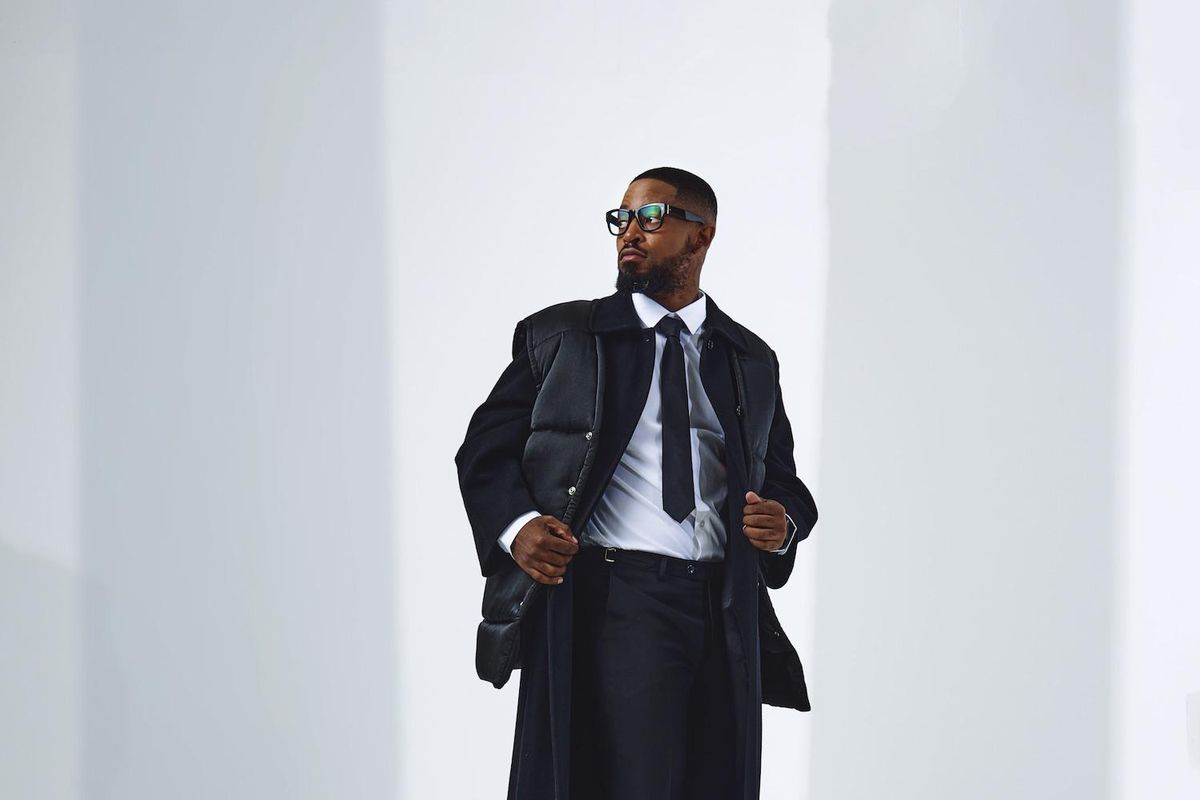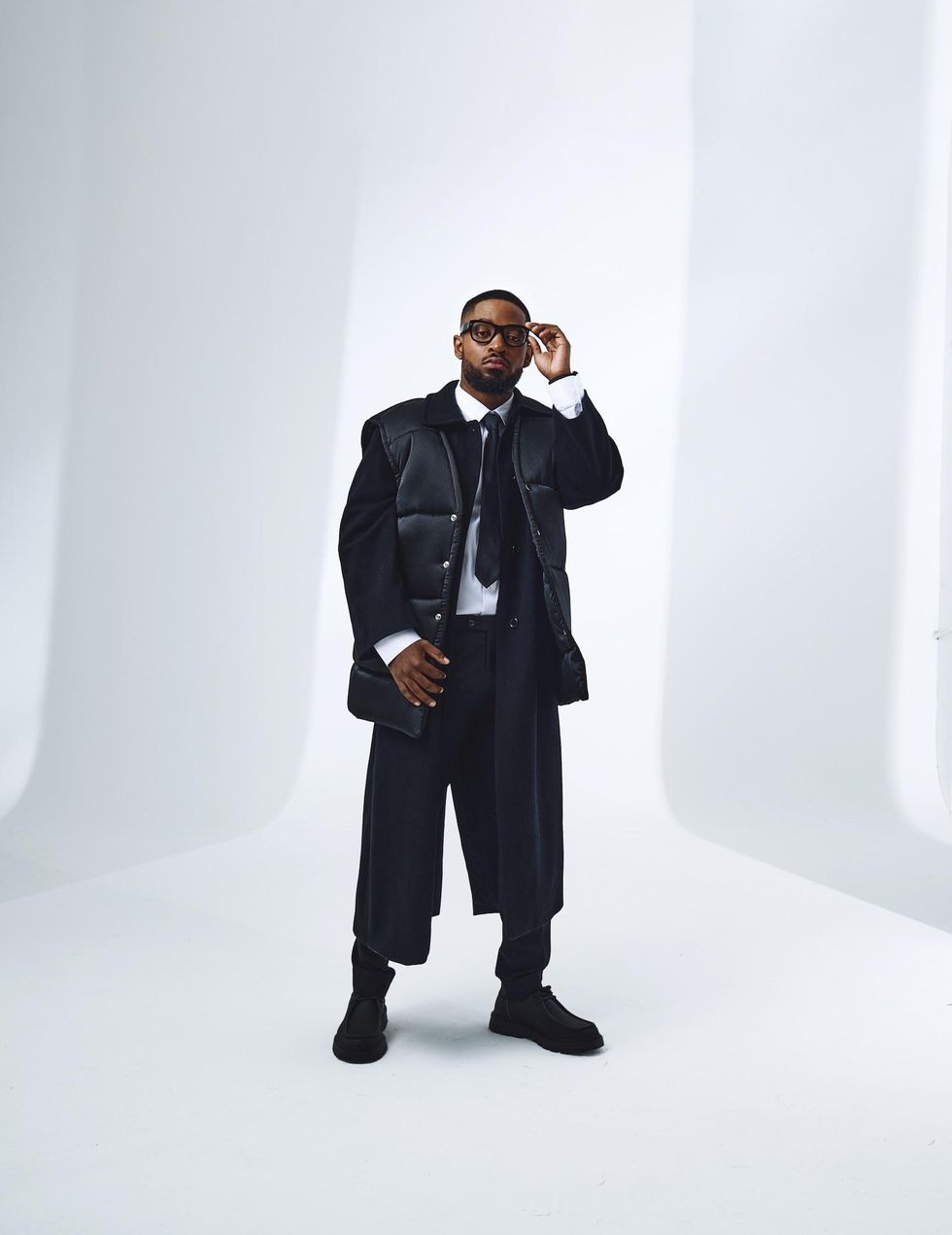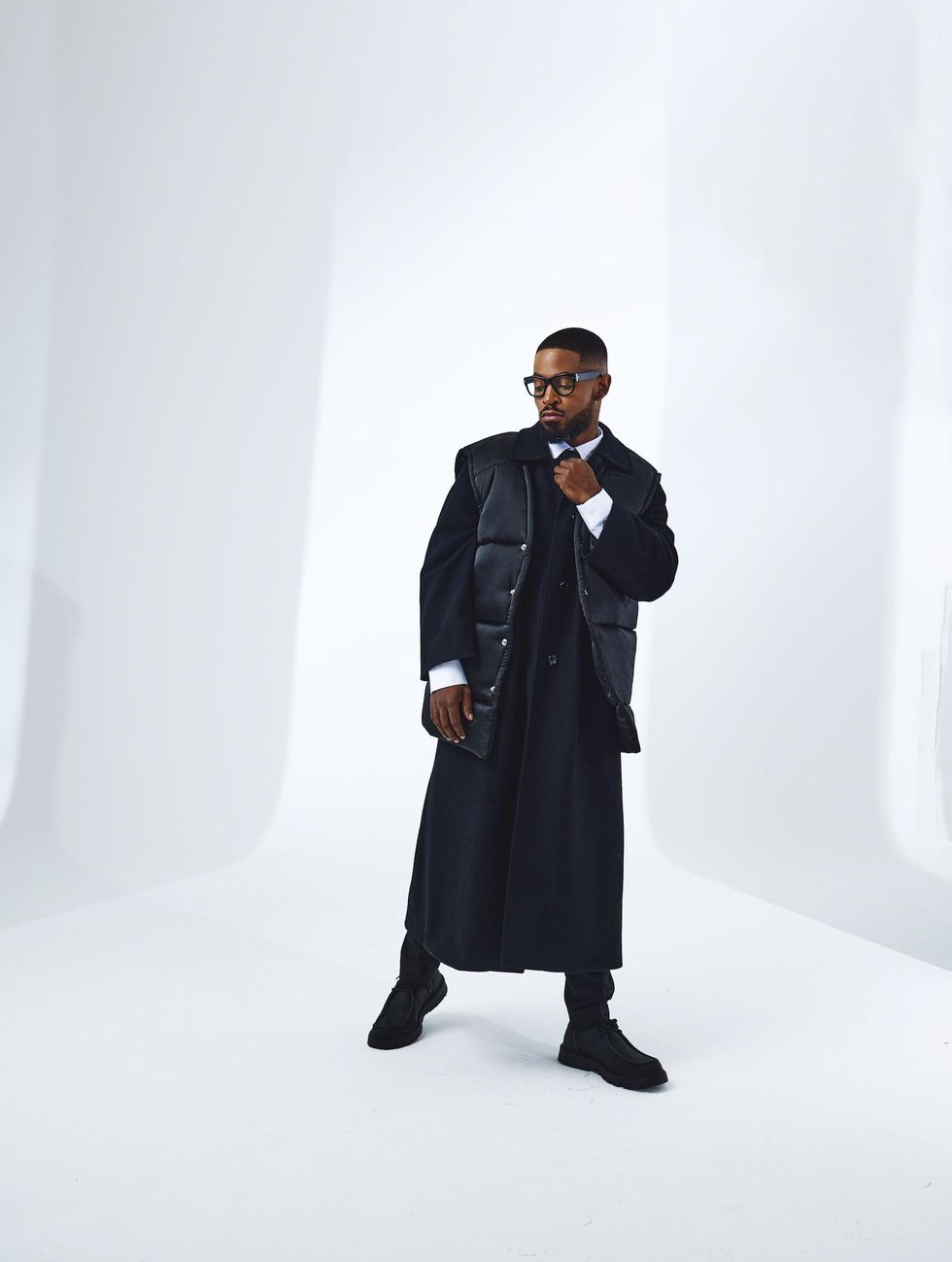Interview: Prince Kaybee Breaks Down 'The 4th Republic'
We talk to the South African DJ and producer about his fourth studio album, addressing social issues through music and more.

Prince Kaybee.
It feels like a lifetime ago when Prince Kaybee came onto the South African scene in 2015 winning the music reality show, 1's and 2's. Since then he has become one of South Africa's favourite artists.
Moreso in 2020, Prince Kaybee made Barack Obama's favourite songs of the year playlist with his single "Uwrongo"featuring Shimza, Black Motion and Ami Faku, a song about reconciliation which has gone platinum. He also recently received platinum plaques for singles "Fetch Your Life," "Club Controlla," "Banomoya," and "Gugulethu" from his third album Re Mmino.
When asked about it he mentions not wanting to celebrate history and focuse on the present. However, with the announcement of "Fetch Your Life" being featured on the official Coming 2 America-inspired soundtrack, Rhythms of Zamunda, and an NPR Tiny Desk performance (one of his biggest dreams) just a few days before the release of his fourth studio album, The 4th Republic, the man still has a lot to celebrate presently.
Made up of 24 songs, The 4th Republic features collaborations with King Monada, Lady Zamar, Black Motion and Chymamusique to name a few.We're on a Zoom call for the interview on a Friday afternoon. South Africa is currently experiencing load shedding (a rolling blackout), fortunately our interview is scheduled between the power outages. Prince Kaybee is hopeful and wants to spark change. Speaking to him you understand songs like "Ayabulela,"which speak loudly against gender-based violence, one of South Africa's biggest issues.
He is unafraid to use music as an instrument for change and awareness but still makes music we can dance to. He is the people's DJ, a Robin Hood of sorts. Listening to "Sofaslahlane" I am taken back to his breakout hit "Wajelwa," which reminds me of nightlife before the pandemic. Nostalgia is arts best friend and something we might have to hold onto for a while as the DJ/producer is set on The 4th Republic being his second to last album.
This interview has been edited and condensed for clarity.

What inspired The 4th Republic?
The album was inspired by my fans and it being my fourth studio album I called it The 4th Republic. I once went live on Instagram and asked people the best album title and they said The 4th Republic and I felt it was genius.
You have announced that this is your second to last album, why?
(Laughs) I have done a lot for South Africans , people are vibing to the music. Now there are a lot of other things I want to focus on. I am not leaving music completely, I will still make music for other people but the brand Prince Kaybee for now I don't think has more to offer or change for the lack of a better word.
How long did The 4th Republic take?
Two years.
What made you do an open call for illustrations for the album cover art on social media?
There are quite a lot of positive things that happen on social media and I tend to filter those things out from the negative. Some things like when you are having a bad day and then someone reminds you how great you are and posts your entire catalogue, that inspires you to go to the studio. My fans have always played a significant role in uplifting my spirit. I think 80% of the time even during the hard Covid lockdown when I didn't feel like going to the studio they really pushed me.

You've often spoken about how you wish you weren't famous, has that changed because of your fans?
Yeah. It's only fair for people that like my music to see me, what I look like or how I make the music because there are a lot of people I can inspire that's why I post so many videos when I am making music. Not everyone is a consumer, some of them are producers so I understand it now. I never understood the dynamics of it but I understood as I grew into the business.
How did you work around lockdown during the pandemic as you were recording last year?
The pandemic affected us all, especially financially. During lockdown, there was curfew,; some people couldn't travel to where the studio was. I live a bit far from where the industry is in Johannesburg, so I had to wait. Some songs had to be recorded virtually and I did not like that process because I like being in the studio with everyone with the energy in one room. I had to compromise and let that happen so it affected the process but I don't regret how it came out.
How much does recording virtually impact the song?
It's always ideal to be with someone in the studio because you get to be inspired and see how someone works. I know there are quite a lot of people that have been in the game for a long time but there are certain things that they miss because they don't believe in change. These new guys come up and they show you different things. I know it's very hard to change something especially when you think you have the formula that's been working for so many years but being with someone from a different era, from a different generation, from a different part of the country, you learn something new.
You have a vast amount of features on your album. How do you go about selecting collaborations?
I don't like working with famous people. If I am famous and have broken boundaries why am I working with other people that have successfully broken boundaries? There is no growth in that. I feel like I need to give people that have not a chance. I have a platform now, I have a voice, and a lot of people listen to what I have got to say musically so it's the best way to unearth talent.
"I don't like working with famous people."
So, as an artist you do not like collaborating with famous people can any up-and-coming artist shoot their shot with you?
If you look at a song like "Umenitosha," I uploaded the instrumental on Twitter and Polaris from Kenya took the instrumental, put it in studio, recorded the song and re-uploaded on twitter and asked me what I think. I was blown away and that's how the collaboration came about so I wish more people could do that and see because you can't really tell if someone is talented when they don't challenge themselves and record something and send it to you. I get a lot of voice notes from people where you can't even hear what tune they are singing in or what they would sound like on a song so it's always best to do those extraordinary things.
Is it because of how you came about in the industry?
No I literally did everything myself, there are a couple of people here and there that put me on radio but there is no one creatively that put me on a feature. No one really helped me in that regard so I feel like I need to do it.
A lot of the music you make is for having a good time but you find a way to include social issues like "Ayabulela,"the song against GBV. What is the intention behind that?
Having a platform and a voice leads people. There is too much responsibility given to artists which is wrong to some extent but I believe we must meet those expectations as people who have a vast audience that is listening. It is why big brands like Coke would call on somebody with a huge following to push a product. I think we can also push issues just as brands push products.
"I think we can also push issues just as brands push products."
So you believe artists to some extent can change the world?
I think it's an individual responsibility to morally understand or maybe to have values that could change the world. It's not about artists. Sometimes you are an artist but you are not really a great person so you won't say much about social issues or speak on anything that can't uplift people in a positive manner.
I know you do not like to celebrate history but last year when you were listed on Obama's favourite Spotify playlist, what was that feeling?
It was great. It was a milestone for South African house music which is not really something that is celebrated all over the world. We have never been mainstream like the Nigerian artists. So for us to find out that the world is watching and listening to South African House music means we are on a great path and need to flood the market with more.
What's your favourite single from the album?
"Umenitosha" featuring Polaris.
When you look at this album and your first album would you say a lot has distinctively changed in your sound?
I think some things as a creative you can't change. It's like when someone sings you can literally hear who is singing without even looking. Some things you can't change but you can explore. I do a lot of exploring on the album. I was inspired by a lot of things that I listen to. I listen to very boring laid-back chilled music and that's the kind of stuff I drew inspiration from, so I don't think I have changed but I experimented a lot.
Is that something you encourage as a producer when you are producing for other artists?
Yeah! Getting out of your comfort zone and being curious inspires growth.
- Prince Kaybee “Tlogela Piano” (featuring RedRo8se) - OkayAfrica ›
- Watch the Music Video for Dream Collaboration by Prince Kaybee ... ›
- Prince Kaybee (ft. Indlovukazi, Supta, Afro Brothers) "Gugulethu ... ›
- Prince Kaybee "Banomoya" feat. Busiswa & TNS - OkayAfrica ›
- Prince Kaybee 'Ebabayo' ft. Nokwazi - OkayAfrica ›
- Watch Prince Kaybee and Msaki's Motivational Music Video For ... ›
- Prince Kaybee, DJ Zinhle & More Earn SAMA Nominations While ... ›
- Prince Kaybee Gives New Women Voices a Chance to Shine in ... ›
- Prince Kaybee Drops Latest Single 'Ebabayo' Featuring Nokwazi ... ›
- Prince Kaybee Drops Latest Single 'Ebabayo' Featuring Nokwazi ›
- Black Motion Release New Single ‘Xxikiwawa’ - OkayAfrica ›

